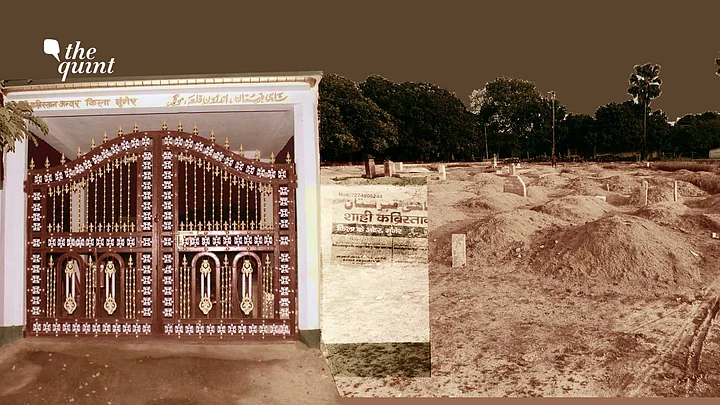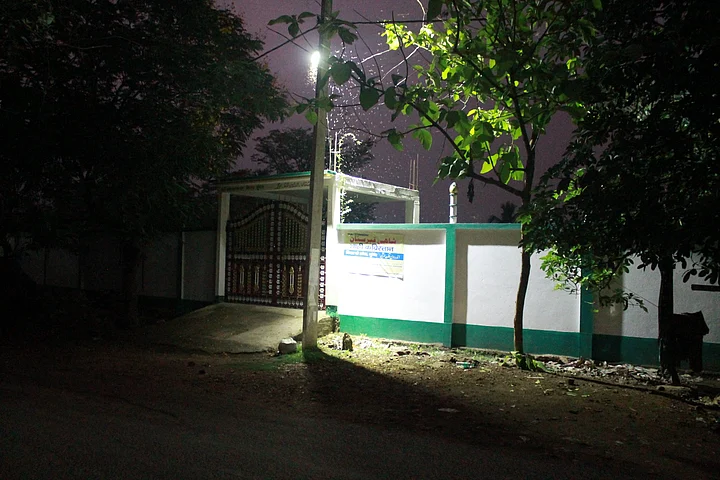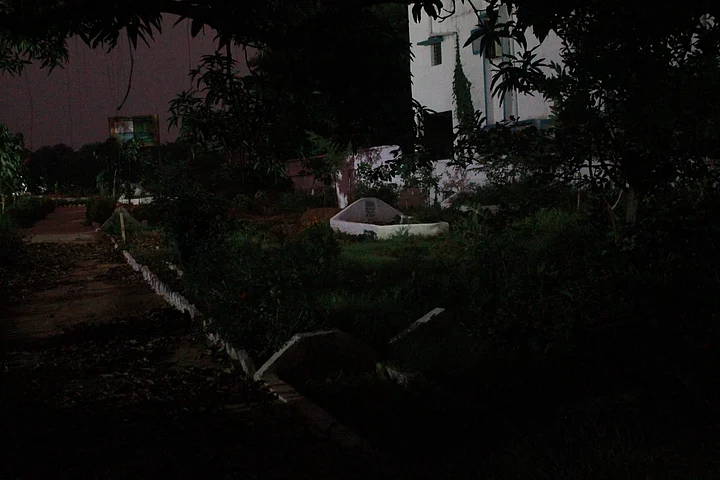On Monday, 24 May, India officially crossed the figure of three lakh COVID-19 deaths even as the second wave of the pandemic ravages across the country.
The daily number of Covid cases have come down to around two lakh, from a peak of 4,14,188 on 6 May. The daily deaths on Wednesday, 26 May, are still over 4,100 a little less than the peak of 4,529 on 18 May.
While these are official figures registered by the government through data collected from its various agencies, many say that the numbers are much higher. A recent piece in The New York Times estimates that the death toll could be at least twice the official figure.
Midnight Burials Out of Fear
The large number of deaths is making it difficult for people to cremate or bury the dead.
In Bihar’s Munger, for instance, burials are taking place either before dusk or at night.
“See this is mainly happening because of the fear of being isolated by neighbours and villagers. In some cases, there aren’t enough members in the family to carry the body to the burial ground, so people who offer to help want it to be done in the dark as they are afraid,” says a 28-year-old man, who refused to be named.
Speaking to The Quint he also informed that in the past couple of months, he has attended five funerals and knows of at least 10 more people who died of Covid-like symptoms in Munger’s Dilawarpur locality. But he doesn’t know if these deaths were registered as COVID deaths or not.
On 11 May, Shomail Arquam’s father, 65-year-old Shibli Naumani, succumbed to COVID-19 at Munger’s National Hospital at around 10 PM, after fighting with the disease in the hospital's ICU for 6 days.
“It was too late before we could get an ICU bed. For three days we struggled to get an ICU bed as we ran from one hospital to another, while my father was gasping for breath,” says Arquam.
After the death of his father, Arquam’s uncle received several calls from his neighbours requesting them not to bring the body at home because they feared the spread of coronavirus. So, he too had to prepare for a night burial.
“We had initially planned to bury my father at Lalmatia (name of the main burial ground in Munger). Digging of the grave had also started, but then people in the locality didn’t allow us to come with the body in the ambulance. They wanted us to come on foot and I didn’t have enough people to carry the body that far,” he added.
Upon talking to the locals The Quint has learned that they fear the spread of COVID when bodies arrive in an ambulance at the cremation or burial ground wrapped in a PPE kit.
“Last month someone brought a body of a COVID-19 positive patient wrapped in a PPE kit. Everyone here panicked....Everyone thought that this could infect the locality,” says a local, who refused to be named.
Later, Arquam’s father was laid to rest at Shahi Kabristan inside Munger’s fort area, early in the morning.
“At least 4 people are required to lay a body in the grave. Despite taking all precautions, I wasn’t finding the necessary number of people to help me,” he added.
On 25 April, the corpse of 49-year-old Hasan's neighbour was brought to Munger from Bhagalpur. It was a suspected COVID-19 case, but Hasan can't verify because the family didn't disclose the reason for death.
The family had just one male member, the brother of the deceased, present when the body arrived. So, Hasan and others in the neighbourhood decided to step in to help. In this case too, because of the stigma, the body was taken for burial at around 4 AM.
Mohammad Khursheed who lost his 27-year-old nephew, Asif Mustafa, to COVID, was also denied a piece of land to be buried in at Lalmatia as the body was taken to the burial ground in ambulance.
“Last month when my nephew died at 11:21 pm, there wasn’t even one person to help me to handle the body that was given to me from Sadar Hospital. I had decided to bury him without planks, and Kafan (cuff, piece of cloth used in burial). All night I had to guard the body from stray dogs. When we reached the burial ground, hundreds of people gathered around the ambulance and didn’t allow us to bury the body,” says Khursheed.
Khursheed also told us that he had to leave the spot immediately as locals started getting aggressive. He then performed the last rites for Asif, who had lost his father years ago, at Shahi Qabristan.
“Lalmatia is the biggest burial ground in Munger that's why people prefer it over other burial grounds for their loved ones to be laid to rest,” Khursheed added
This situation isn’t particular to Munger or even Bihar.
This was also seen in Vadlamudi village in Andhra Pradesh’s Guntur district. Salim Durrani, who had gone there to care of his father who was down with COVID-19, had to face the same stigma.
“When my neighbour -76-year-old Salimun - died, nobody from the village came to help for the funeral. Men who dig the grave refused to do so. We had to call a JCB (earthmoving and excavating machine) to dig the grave,” says 49-year-old Durrani.
The Quint found that similar fears may have contributed to the large number of bodies on the banks of the Ganga river. For instance in Gahmar village of Ghazipur, there were rumours that the smoke coming out of funeral pyres leads to the spread of COVID-19 and as a result people are scared to cremate bodies.
While lack of medical infrastructure has been cited as one of the major reasons for raging COVID-19 deaths in India, lack of communication and proper knowledge of handling dead bodies are making the last rites difficult, denying individuals dignity after death.


